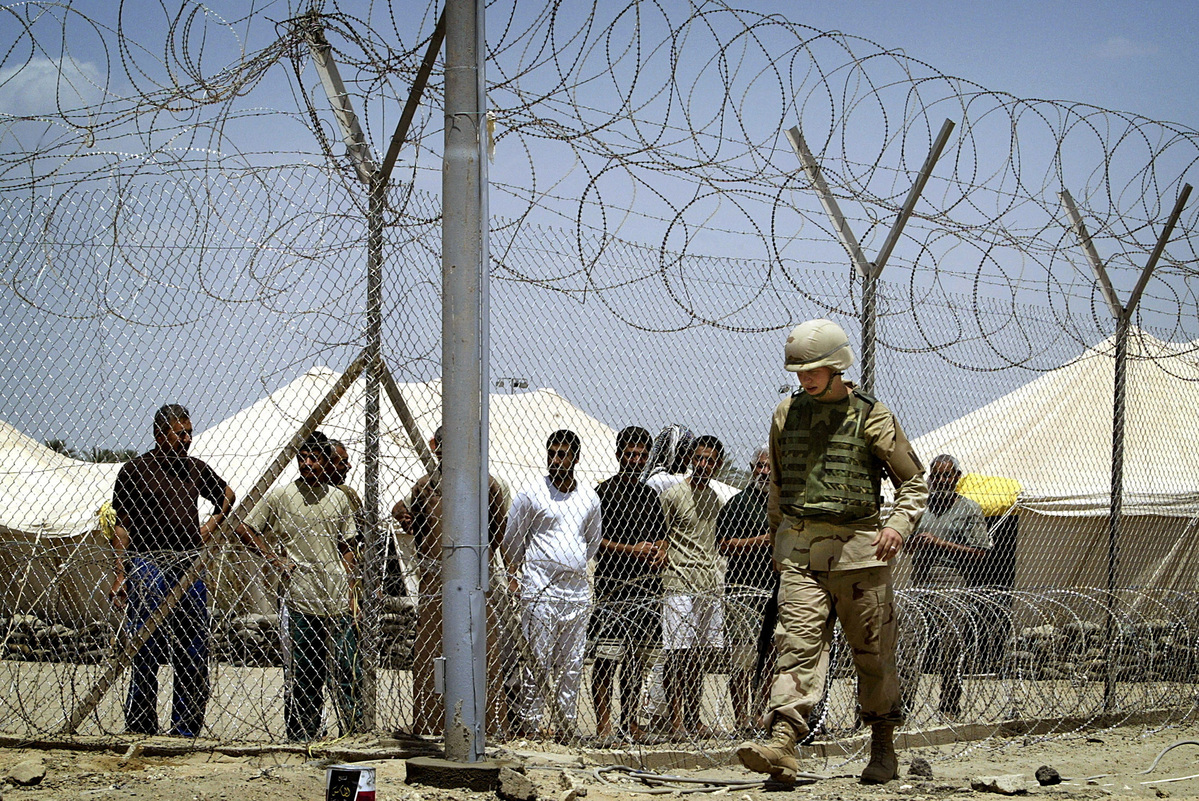Iraq War points to Washington's worst violation of human rights


The US government has been issuing reports on human rights practices in every other country on the planet since 1977 without ever publishing one on itself. Such finger-pointing, often blindly, appears especially ironic this year because of what the reports released on March 20, the 20th anniversary of the US invasion of Iraq, say.
However, US Secretary of State Antony Blinken did not even mention the disastrous Iraq War at his news conference on Monday. The US invasion of Iraq, with the active support of countries such as the United Kingdom and Australia, was based on lies. Former Iraqi leader Saddam Hussein had not stockpiled weapons of mass destruction, which the US used as a pretext to invade Iraq. Besides, the US commission on the Sept 11, 2001, attacks concluded there was no evidence to show any relationship between Saddam Hussein and al-Qaida.
Between 100,000 and 500,000 Iraqis, according to different estimates, were killed in the Iraq War and more than 9 million were forced to flee their homes and become refugees or seek shelter elsewhere in the country. But the real cost is much higher because a large number of people died as an indirect cause of the war such as lack of access to medical care, and non-availability of food and safe drinking water.
If the Iraq War, supported by both parties and endorsed by many news outlets including The New York Times, is not the worst human rights violation, or a war crime or crime against humanity in the 21st century, then what constitutes human rights violation or war crime?
Claiming that the Iraq War was not a crime against humanity is like arguing that impoverishing innocent people in Cuba, Iran, Venezuela, Afghanistan and Syria, by imposing barbaric economic sanctions on those countries, as well as depriving women and children of food and medicine, is not a crime against humanity or human rights violation.
The Iraq War has caused untold suffering to not just the Iraqi people but also people in the rest of the Middle East and even Europe, which encountered wave after wave of Iraqi refugees.
Besides, the 20-year-long US war in and occupation of Afghanistan, NATO's invasion and bombing of Libya in 2011 and Washington's drone strikes on a dozen or so Muslim countries are among the worst human rights violations and war crimes.
Yet on the 20th anniversary of the Iraq War, there was such a deafening collective silence among Western politicians who like to lecture the world about human rights and accuse other countries of committing war crimes or crimes against humanity.
No wonder even Tibor Nagy, a former US assistant secretary of state for Africa and former US ambassador to Guinea and Ethiopia, said in a tweet on Tuesday that it was never pleasant delivering the annual US human rights report to host country officials. "They always asked: 'Where is report on HR practices in US itself?'" wrote Nagy, adding that "that was, and remains, a great question!"
On the other hand, Mexican President Andres Manuel Lopez Obrador lashed out at US hypocrisy on Tuesday, calling the US reports "lies" and stressing that the US "cannot talk about human rights with Julian Assange detained, cartel violence with US President Joe Biden bombing the Nord Stream, or democracy while arresting the leading presidential candidate Donald Trump".
The US government has weaponized human rights, but the world can no longer be easily fooled. The US has invaded and bombed more countries and waged more wars than any other country over the past decades.
Domestically, the staggering racial disparity including the 6:1 wealth gap between white and black Americans is probably the biggest human rights violation by the US administration. And the US Supreme Court overturning Roe v Wade in June 2022 is the biggest human rights violation against women.
The US government would be better served if it publishes a report on its own human rights record instead of ignoring the mess at home and pointing fingers at others.
The author is chief of China Daily EU Bureau based in Brussels.
chenweihua@chinadaily.com.cn

































